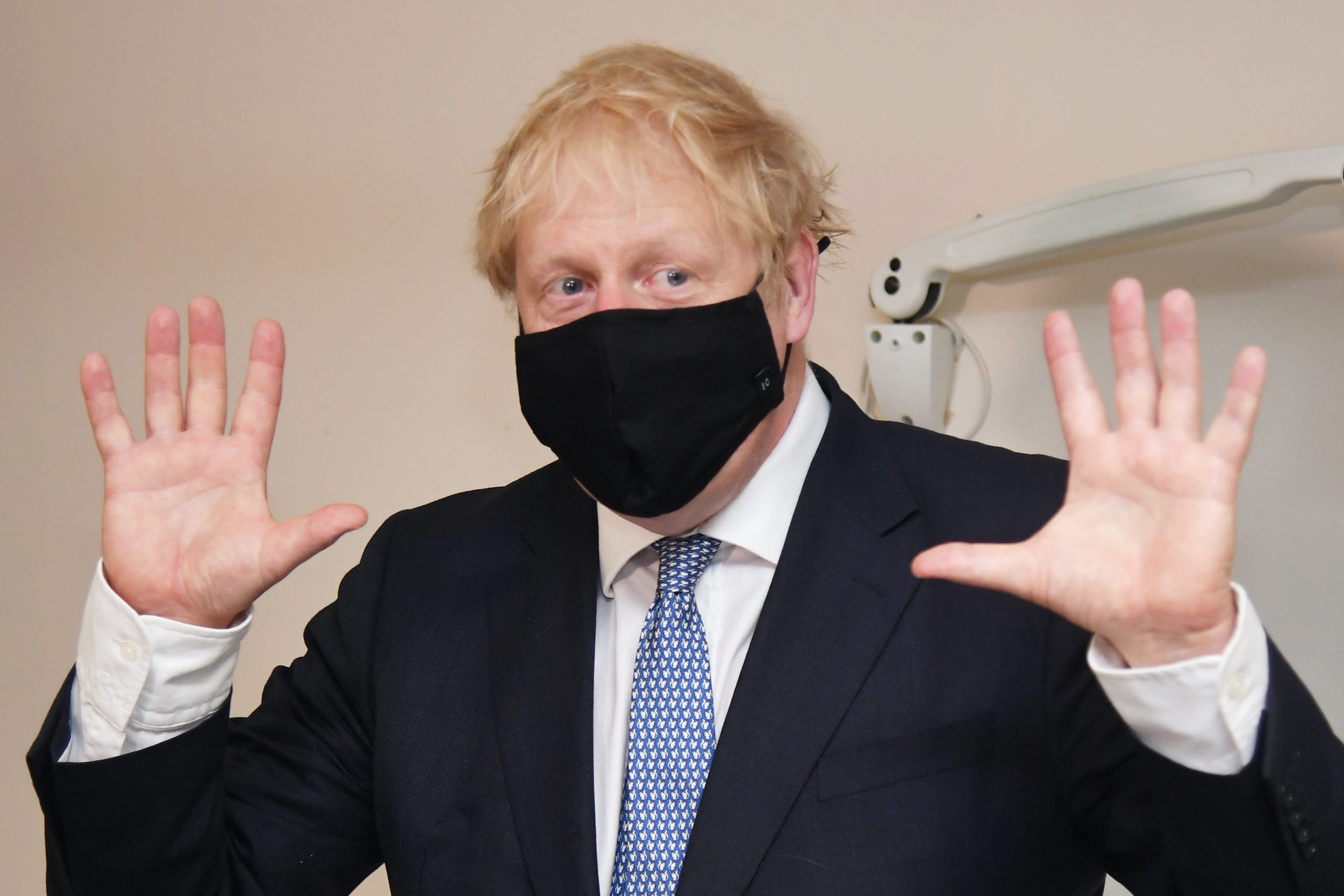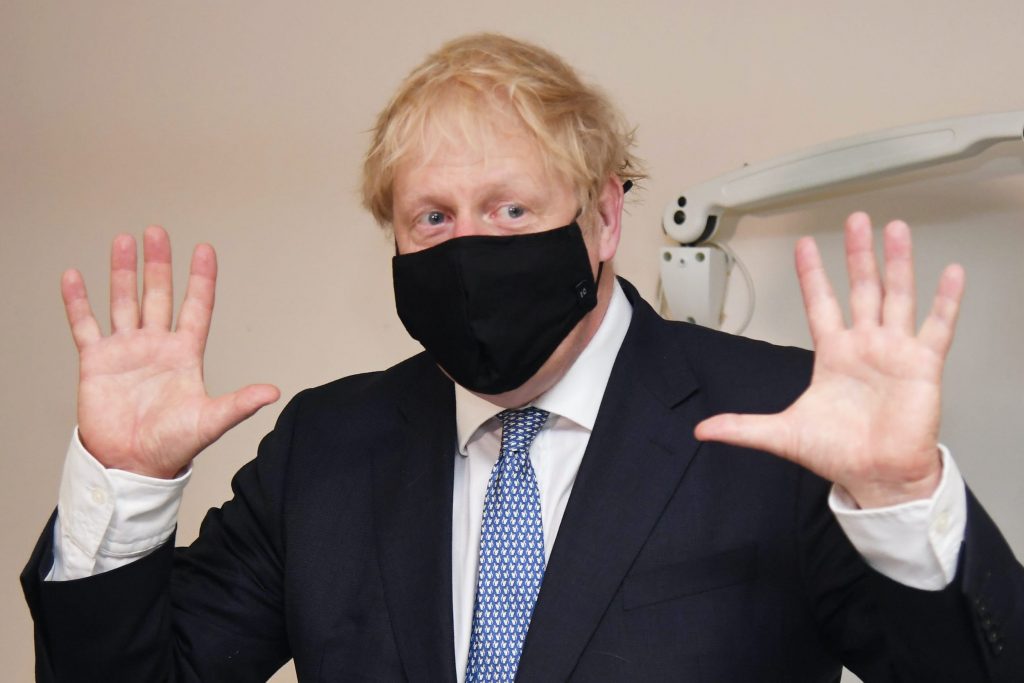
Getty
- EXCLUSIVE: The British Business Bank gave convertible loans to 1,140 companies in the pandemic, taking stakes in some.
- It refuses to say which companies received money, or how much.
- The government has repeatedly given millions in pandemic-related contracts to friends of ministers and Conservative MPs.
- See more stories on Insider's business page.
The UK's state-run economic development bank has refused to say who received more than £1 billion ($1.38 billion) it gave out in taxpayer-funded loans to startup companies.
The British Business Bank, the 100% government-owned bank for small and medium-sized enterprises, has disbursed more than £1.1 billion of convertible loan agreements to 1,140 companies as part of its "Future Fund" scheme.
The scale of the loans would make the UK government – and by extension, the taxpayer – the largest venture capital fund in Europe, when comparing it to private funds.
But the bank has denied repeated requests to identify its investments and refused Insider's direct request to disclose where the money went.
A man who ran a pub near Matt Hancock's house got a £30 million contract despite having no experience
The lack of transparency over who got the money, or what they did with it, is of concern because the government has repeatedly awarded lucrative contracts to friends of ministers in Boris Johnson's government.
For instance, a man who ran a pub near health secretary Matt Hancock's house won a £30 million ($31.4 million) contract to provide personal protective equipment - despite having no experience in the industry - after sending WhatsApp messages to Hancock.

In 2020, the government awarded £17.3 billion in contracts to companies supplying services to fight the pandemic. Of that, £10.5 billion was without competitive bidding, according to an analysis by the National Audit Office. Friends of Conservative politicians were 10 times more likely to receive government contracts than companies who applied through the Department of Health and Social Care, the NAO found.
Even former prime minister David Cameron lobbied privately for financing work with the NHS for Greensill Capital, a bank in which he owned stock.
Loans of up to £5 million which can be converted into stock
"This is a vast sum of money - gone to goodness knows who, for goodness knows what reason," said Jolyon Maugham, founder of the Good Law Project, which has campaigned for transparency in government. "There's never, never, a good reason for ministers to cloak the identities of those receiving public money."
The Future Fund is one of four schemes designed by the Treasury, which opened for applications in May 2020. The loans offered under the future fund ranged from £125,000 to £5 million, and could be converted in the future into stakes in the businesses owned by the government.
At least 52 loans have been converted into equity in businesses, according to the Financial Times.
A £375 million successor scheme, "Future Fund: Breakthrough," was announced in chancellor Rishi Sunak's January 2021 budget, with minimum investment round sizes of £20 million.
The British Business Bank, which oversees the scheme, has repeatedly refused to answer media requests to name the companies who have received loans, and has not said which loans have been converted into stakes on behalf of the taxpayer.
FOI request denied
The bank also refused a request made under freedom of information laws by Insider to reveal the information. Doing so could "have a detrimental impact on [the businesses who have received the loans], for instance it could lead to speculation over a company's financial standing, which could negatively impact their sales and/or potentially affect their current or future business opportunities," the bank said.
The refusal comes despite business secretary Kwasi Kwarteng's assurance at a House of Commons' Business, Energy and Industrial Strategy (BEIS) committee meeting in April that he is "all in favour of transparency and openness in publications" around coronavirus business payments.
One senior figure in the UK venture capital industry, who spoke with Insider on the condition of anonymity, said they were surprised that the British Business Bank was unwilling to disclose who it had funded - and to what extent.
'I don't think it's a good look'
"I don't think it's a good look for them to not be transparent," the source said. Any company that applied to the Future Fund would have been sensibly trying to shore up capital to weather the pandemic, the end of which was impossible to predict. "Therefore, I wouldn't have thought sharing the names of companies funded would not reflect poorly on nor be negative for the companies".
Some members of parliament agree. "At a time when the government is mired in cronyism and procurement scandals, it is astounding that they feel able to give £1.1 billion of taxpayers money to businesses with zero accountability to the public," said Chi Onwurah, the shadow minister for digital, science, and technology in the opposition Labour party.
Darren Jones, Labour's chair of the BEIS committee, told Insider: "Ministers have assured my committee that data will be published in due course. It's right the businesses are told first but it's also right that we have full transparency and accountability over the use of public funds."
